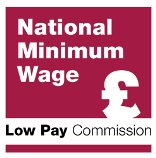Terms of reference
An outline of the Low Pay Commission's purpose, aim and operation, with information on the commissioners and their code of conduct.
The purpose of the Low Pay Commission
The Low Pay Commission (LPC) is an advisory non-departmental public body, established under the National Minimum Wage Act 1998. Its purpose is to provide independent advice to the government on matters relating to the National Minimum Wage referred to it by the Secretary of State for Business, Innovation and Skills.
The aim of the LPC
The aim of the LPC is to recommend levels for the minimum wage rates that will help as many low-paid workers as possible without any significant adverse impact on employment or the economy. The advice the LPC offers the government, in pursuit of this aim, is based on the best available evidence.
The commissioners
The LPC consists of a chair and 8 other commissioners appointed by the Secretary of State. Commissioners are appointed following the code of practice for ministerial appointments to public bodies. This is issued by the Commissioner for Public Appointments.
The LPC aims to have a balance of commissioners who have knowledge of, or experience or interest in:
- trade unions or matters relating to workers
- employers associations or matters relating to employers generally
- independent areas - with other relevant knowledge or experience, for example, academic experts in labour markets
The operation of the LPC
The LPC publishes a business plan each year. The business plan includes details of its remit, key milestones, research programme, and the resources allocated to fulfil its function.
The LPC is told about the issues it is required to consider by way of a ‘remit’ from the government (usually annually). To respond to the remit, the LPC publishes a report, which is submitted to the government within a specific timetable.
In considering the issues in the remit, the LPC completes detailed analysis of the evidence before making any recommendations. It takes an open and consultative approach to its work. The information it uses is gathered through wide-ranging research and consultations, including visits, discussions with businesses, workers, representative bodies, government and academics. In reporting to the government, the LPC explains the procedures it used, along with the reasons for its recommendations.
The minimum requirement for formal meetings of the LPC is 5 commissioners, including an independent, an employer and an employee commissioner. If the chair is absent for any formal meeting, one of the independents chairs instead.
Further details concerning the operation of the LPC can be found in the code of conduct.
These terms of reference will be reviewed periodically.
